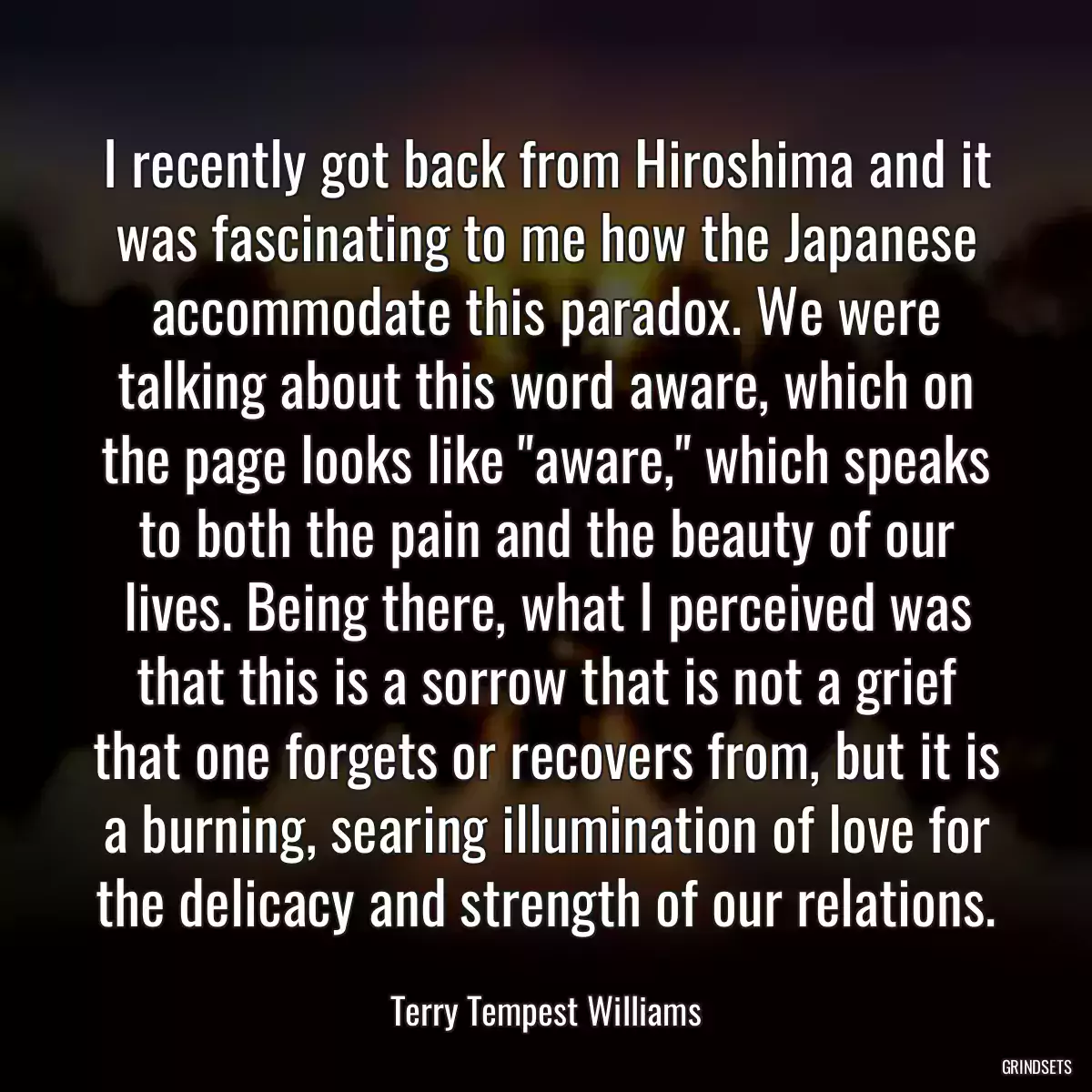
I recently got back from Hiroshima and it was fascinating to me how the Japanese accommodate this paradox. We were talking about this word aware, which on the page looks like "aware," which speaks to both the pain and the beauty of our lives. Being there, what I perceived was that this is a sorrow that is not a grief that one forgets or recovers from, but it is a burning, searing illumination of love for the delicacy and strength of our relations.